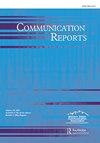定义性同意:来自大学生群体的观点
IF 1.6
Q3 COMMUNICATION
引用次数: 3
摘要
目前的调查探讨了大学生如何定义性同意,以及他们产生这些定义的来源。专题分析产生了五类同意定义:许可、同意、意愿、需要和上下文因素(即关于同意过程的规定;需要性同意的行为)。参与者了解性同意定义的来源包括:教育经历、朋友、家庭、学校、媒体、个人经历和不确定/常识。研究结果强调了性同意作为一种交际结构的复杂性,以及大学生构建同意概念的各种来源。讨论了对大学健康和性侵犯规划的影响,以及对研究人员寻求进一步探索性同意的多方面结构的影响。本文章由计算机程序翻译,如有差异,请以英文原文为准。
Defining Sexual Consent: Perspectives from a College Student Population
The current investigation explored how college students define sexual consent, and the sources from which they developed these definitions. Thematic analysis generated five categories of consent definitions: permission, agreement, willingness, wanted-ness, and contextual elements (i.e., stipulations regarding the consent process; behaviors that require sexual consent). Participants’ sources from which they learned about the definition of sexual consent included: educational experiences, friends, family, school, media, personal experiences, and unsure/common sense. Findings highlight the complex nature of sexual consent as a communicative construct and the varied sources from which college students constructed their conceptualization of consent. Implications for college health and sexual assault programming, as well as for researchers looking to further explore the multi-faceted construct of sexual consent, are discussed.
求助全文
通过发布文献求助,成功后即可免费获取论文全文。
去求助
来源期刊

Communication Reports
COMMUNICATION-
CiteScore
3.70
自引率
0.00%
发文量
18
期刊介绍:
Communication Reports (CR), published biannually since 1988, is one of two scholarly journals of the Western States Communication Association (WSCA). The journal publishes original manuscripts that are short, data/text-based, and related to the broadly defined field of human communication. The mission of the journal is to showcase exemplary scholarship without censorship based on topics, methods, or analytical tools. Articles that are purely speculative or theoretical, and not data analytic, are not appropriate for this journal. Authors are expected to devote a substantial portion of the manuscript to analyzing and reporting research data.
 求助内容:
求助内容: 应助结果提醒方式:
应助结果提醒方式:


